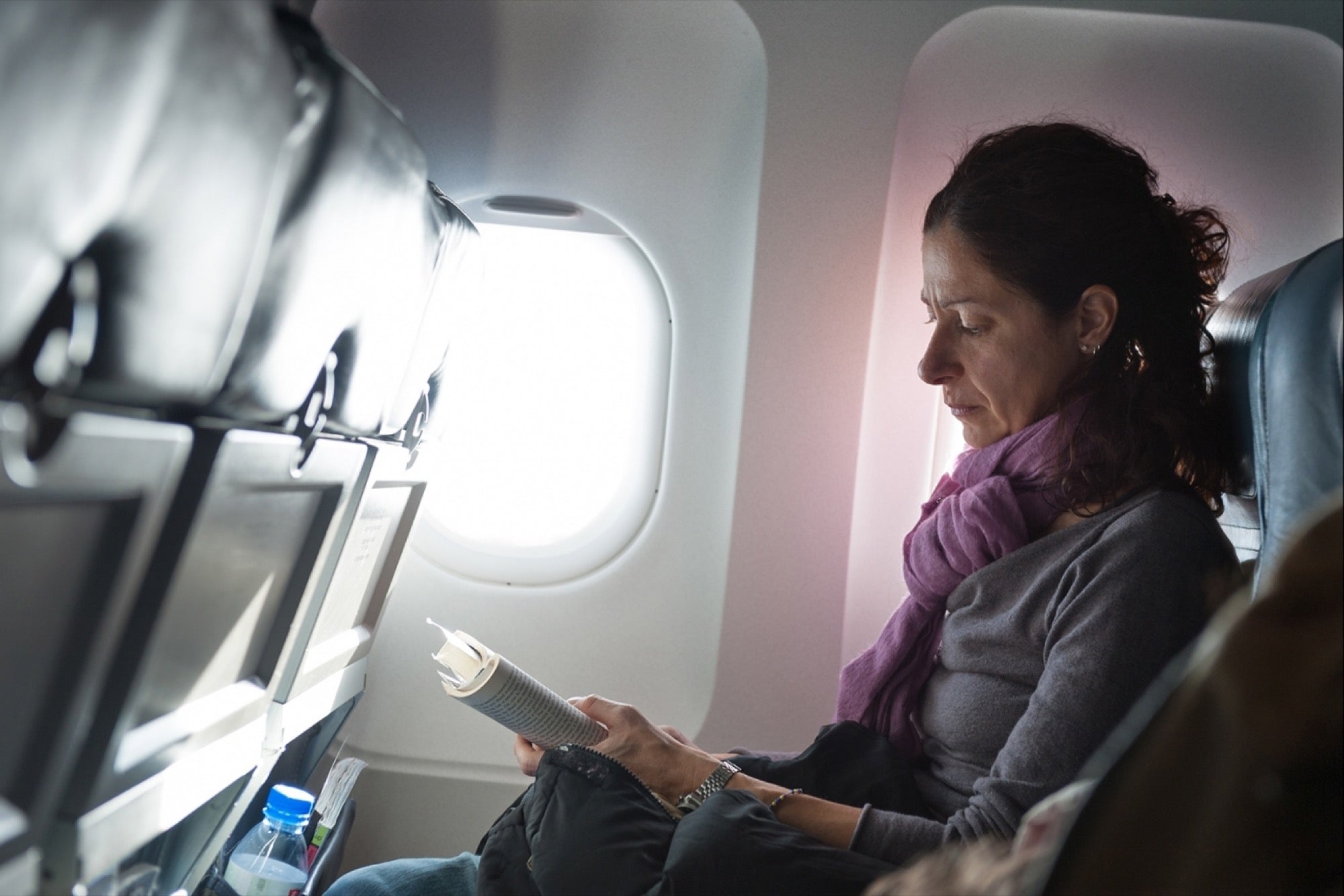Ease Your Summer Business Travel in 5 Steps Developing a sound 'packing' strategy isn't as simplistic as it sounds.
By Jeffrey Hayzlett Edited by Dan Bova
Opinions expressed by Entrepreneur contributors are their own.

If you're a regular business traveler, as I am, you may have noticed the recent increase in travelers. If you haven't, you're about to. July is the busiest travel month of the year, according to the airline industry. School's out, families are going on vacation and business travelers are trying to squeeze in as many meetings as possible before the lull in August.
Related: Business Travel 101: 3 Ways to Get the Most From Your Trip
According to the Bureau of Travel Statistics, in 2014, 71.8 million people flew that year during the month of July. That was 37 percent more passengers than boarded a plane in February, the slowest month. So, if you're dreading the throngs of people clogging security lines and baggage check-in areas this month, you're not alone.
Here are a few tips to make the most out of your business travel this summer.
1. Know the difference between 'non-stop' and 'direct' flights.
If you thought these terms were one and the same, think again. They're not. A direct flight may still stop, but instead of having to switch planes, you'll just stay put during the layover. If your business meeting is a quick one, always opt to fly "non-stop" instead of direct. It's a waste of your time to take a day to travel there and another day to travel back.
2. Try to score an upgrade.
Once you've determined your flight itinerary, try to score an upgrade by booking an economy ticket with a "Y" or "B" booking code.That means that since the ticket is a full fare, you will receive a complimentary upgrade if there are open spots in the next class of service.
You need to request the upgrade when you book your ticket and check your status 24 hours before your flight. If you're a frequent flyer, you should hear back from your airline approximately 100 hours prior to departure.
Also, dress the part. Often, airlines look for people who are well-dressed who could potentially be upgraded -- for free. Wear comfortable clothes, but do dress up a bit. You never know when your seat at the back of the plane might turn into a first-class experience. And who knows? You might end up sitting next to a potential client.
3. The early bird gets the worm.
If your main goal is to avoid big families headed out on summer vacation -- like mine -- fly out as early as possible. There is a better chance of your plane already being at the gate early in the morning; and even if there are delays, you'll have a better chance of getting to your destination on the same day. This is especially true if you're flying out of busy airports, such as the New York City tri-state area, Los Angeles' LAX, Chicago's O'Hare or even Atlanta's Hartsfield-Jackson airport.
Related: 8 Ways You Can Do Business Travel More Comfortably -- and Cheaply
4. Develop a sound packing strategy.
I know this sounds simple, but you wouldn't believe the number of times I've sat on a plane watching someone trying to stuff a rather large carry-on suitcase into a tiny overhead compartment. Then this traveler gets mad when the flight staff says the bag(s) need to be checked. While I understand that no one likes to pay those pesky fees, you can't fault the airline when your luggage aims to defy the laws of physics.
Whether your trip is for business or pleasure, you must be savvy in the packing department. In 2014, airlines earned $3.5 billion in checked baggage fees according to the Bureau of Transportation Statistics. That's no small feat, but there are ways to circumvent those fees.
First, always pack the essentials: socks, underwear, an extra shirt or pants/skirts that can all be mixed and matched with one another. Some travelers pack two shirts for every pair of pants they pack. Me, I never leave home without my cowboy boots. I may be in the concrete jungle, but I'm a cowboy at heart. Plus, whatever meeting I go to, they'll remember me as the guy in cowboy boots.
Next, be sure to make room for something that makes it easier to sleep: a pillow, blanket or even sleepwear. Keep extra toiletries like toothpaste and cellphone chargers in your carry-on bag in case you need them at the airport, onboard or during that unexpected delay. And if the airline loses your luggage, at least you'll have your toothbrush.
5. Don't blame the weatherman, and leave plenty of time.
If you are scheduled to fly out and don't take into account the weather or traffic, you have no one to blame for yourself. Planning your trip to the airport takes as much effort as planning the deck you will be presenting during your business meeting.
Airlines are getting more sophisticated about offering waivers to customers when it's clear that bad weather will be passing through the area, potentially cancelling your flight. If you know bad weather is coming, check with your carrier prior to heading out to the airport. If your flight is cancelled, see if the airline is allowing passengers to change their flights.
However, remember that airlines will not offer any compensation if the cancellation is due to weather issues. They have about as much control over the weather as you do.
Being caught in traffic can be a maddening experience for anyone, but leave yourself plenty of time to get to the airport. Even if you've booked a 6 a.m. flight, don't assume you'll get to the airport in no time or that you'll breeze through security. Not planning ahead can (and has) proven to cause plenty of headaches that could have been avoided had you planned ahead.
Another tidbit some travelers aren't privy to is that, if there's a flight delay or cancellation, airlines prioritize those passengers who purchased their tickets directly through the airline. If you purchased your tickets from a discount website, you'll be bumped to the bottom of the line for re-booking.
Related: Business Travel Growth Lagging Due to Global Concerns
One last thing to keep in mind: Charge everything you're going to need the night before. Pack every gadget, cord and accoutrement you'll be needing for your flight or meeting. Put them where you can easily access them, and never, ever board the plane with an empty battery. Not every seat/airline has an outlet you can use; and if you're flying for business, but your computer battery's dead, you'll lose valuable time that you could have spent taking care of emails or getting some work done.











